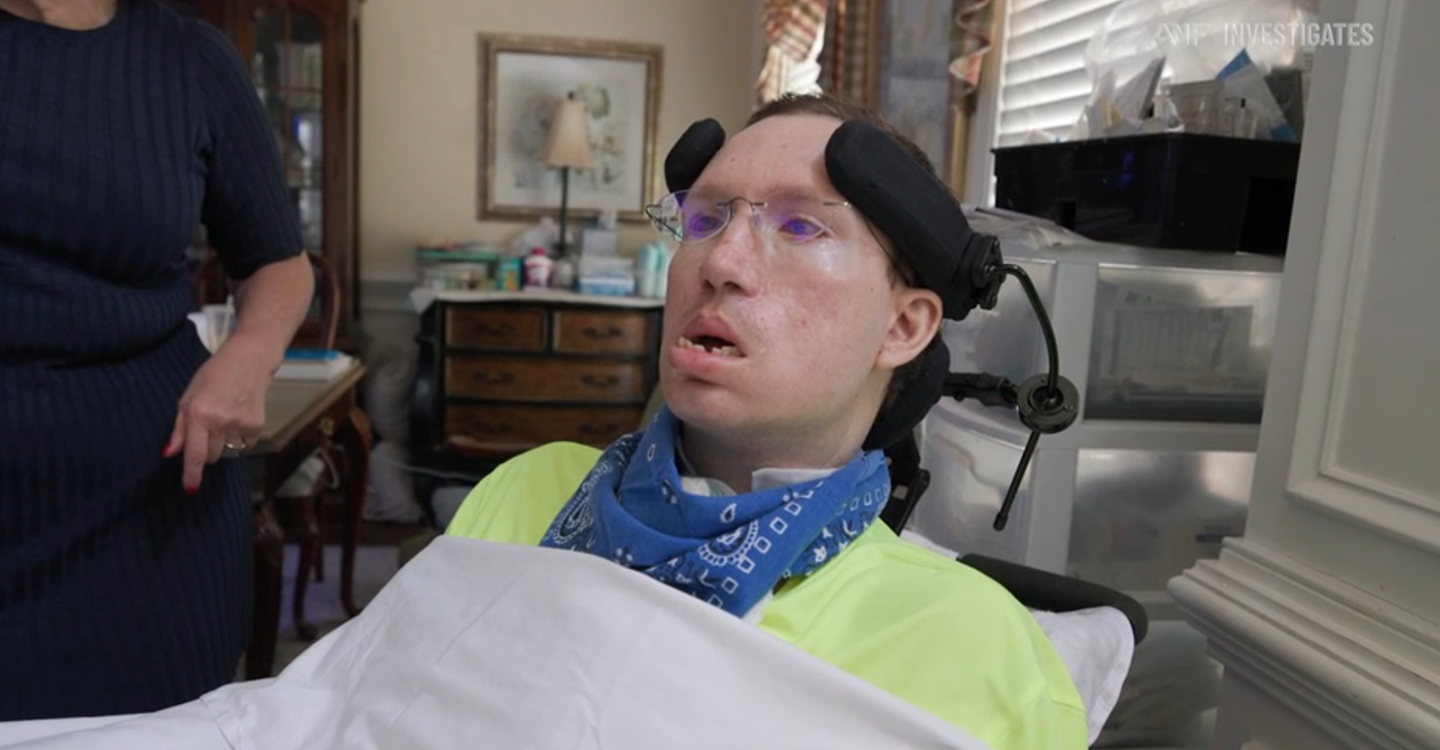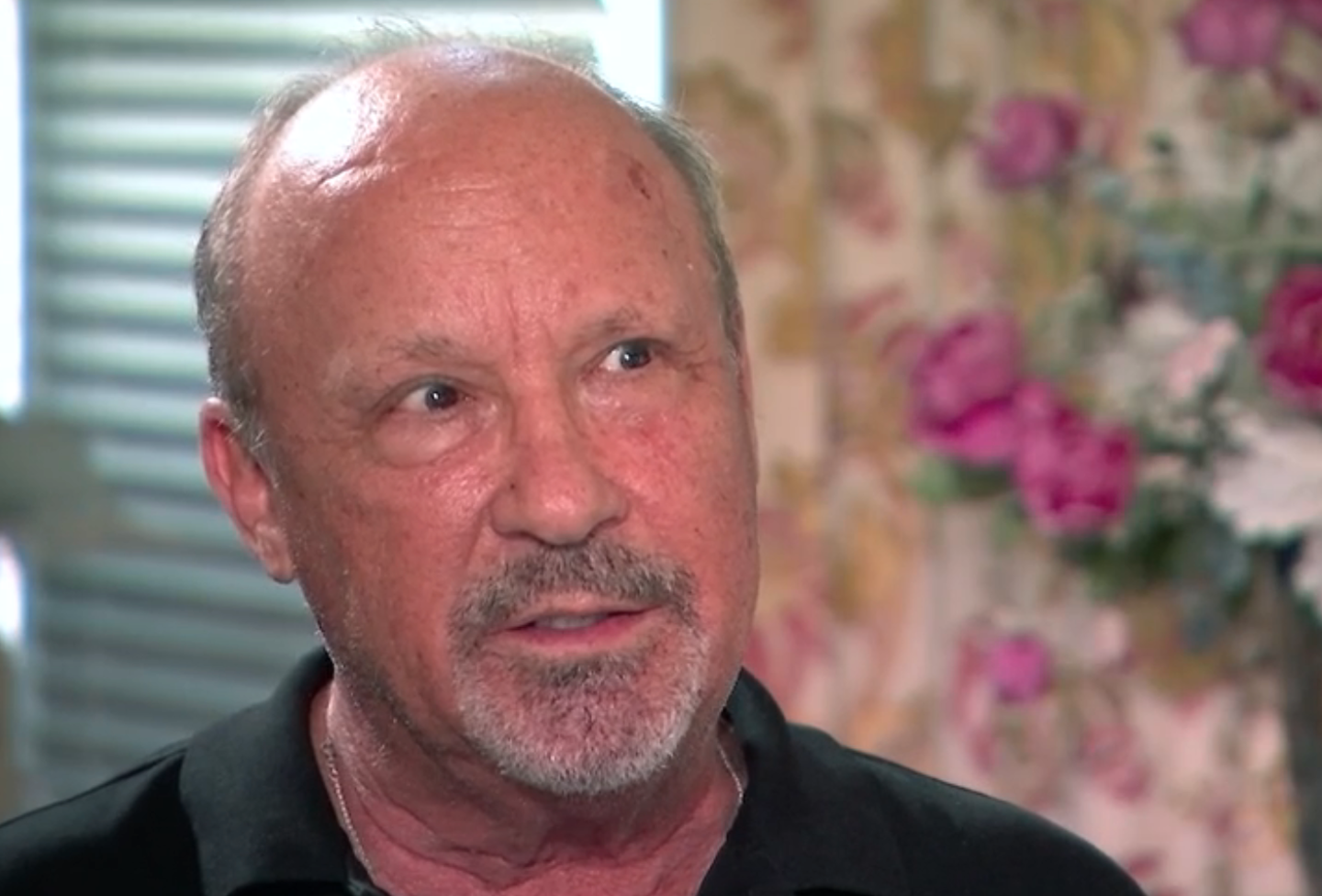He won one of the largest medical malpractice settlements in history — but his family says no amount of money can undo the damage.
Father Of Man Left With Locked-In Syndrome After Chiropractor Visit Shares Heartbreaking Reality Of His Son's Life
The father of a man who developed locked-in syndrome after visiting a chiropractor has spoken out about what life is really like for his son today. Nearly a decade later, he says every single day is a challenge that revolves around constant care and heartbreak.
It’s been ten years since the incident that changed Jonathan Buckelew’s life forever. His father recently sat down with reporters to share how their family continues to care for him around the clock, describing the effort, pain, and determination that keeps them going.
Back in October 2015, Jonathan had gone to a chiropractor’s office when he suddenly began feeling dizzy, disoriented, and confused. Within moments, he became unresponsive and had to be rushed to North Fulton Hospital in Georgia for emergency treatment.
What followed has been described as a devastating series of medical failures. According to court records, hospital staff failed to identify that Jonathan, who was only 24 years old at the time, was suffering from a stroke. He remained without a proper diagnosis or treatment for over 12 hours, a delay that his family’s lawyers later described as “gross negligence.”
Because of this delay, Jonathan suffered severe brain damage that left him with locked-in syndrome — a condition that causes complete paralysis of nearly all voluntary muscles. Ten years on, he can’t move or speak, though he remains fully aware of everything happening around him and can still communicate through small eye movements and blinking.
Now, as the family prepares to mark the tenth anniversary of the tragedy, Jonathan’s father, Jack, continues to share his son’s story, both to honor him and to raise awareness about the importance of timely medical care during emergencies like strokes.
Speaking to Atlanta News First, Jack said: "Treatments never came until it was way too late. It's just a lot of pain. In spite of his spirit, which keeps us going. He wants to do things, he wants to go places, it just breaks our heart to see him like he is."
Despite his condition, Jonathan remains mentally sharp and aware. He communicates through his eyes, while a team of family members and nurses care for him 24 hours a day. Every day involves a delicate routine of feeding, physical therapy, and careful monitoring to keep him safe and as comfortable as possible.

Jack went on to say: "There are some days where he says, 'pull the plug'. Those are the tough days."
"I really feel like there's no real justice for somebody who lost everything, who lost every part of his life. It's way past the anger and the frustration, just focusing on 'what can we do? How can we give him the best life possible?'"
To make life easier for Jonathan, the family has completely remodeled their home. They’ve installed specialized medical equipment and created a therapy room for daily exercises. One small comfort that brings him joy is a large fish tank in their living room — he spends hours watching the fish drift around, something his father says helps calm him and brighten his days.

After years of legal battles, the Buckelew family was awarded a $75 million settlement — one of the largest medical malpractice verdicts in U.S. history. Their lawyer, Lloyd Bell, spoke out following the ruling, emphasizing just how avoidable the tragedy truly was.
He said: "Jonathan was having a stroke when he came to the hospital, and they missed it. The people who were responsible for reading the radiographs misread them."
"The ER doctor saw this patient was having all these signs and symptoms of stroke and never called a stroke alert, and they had policies in place that they were supposed to follow certain protocols to reach the correct diagnosis, and they didn't follow their policies and procedures."
"This case is heartbreaking because Jonathan's paralysis and brain damage were completely avoidable."
"If the slew of healthcare providers involved in Jonathan's care had acted according to the standard of care, caught and treated his stroke earlier, and communicated more effectively, Jonathan's life would look entirely different."
The family hopes Jonathan’s story serves as a reminder to hospitals and medical professionals about the importance of acting quickly and following proper procedures when dealing with stroke symptoms. As his father says, their focus now is simply on giving Jonathan the best life they can — even if their hearts still ache for the one he lost.

